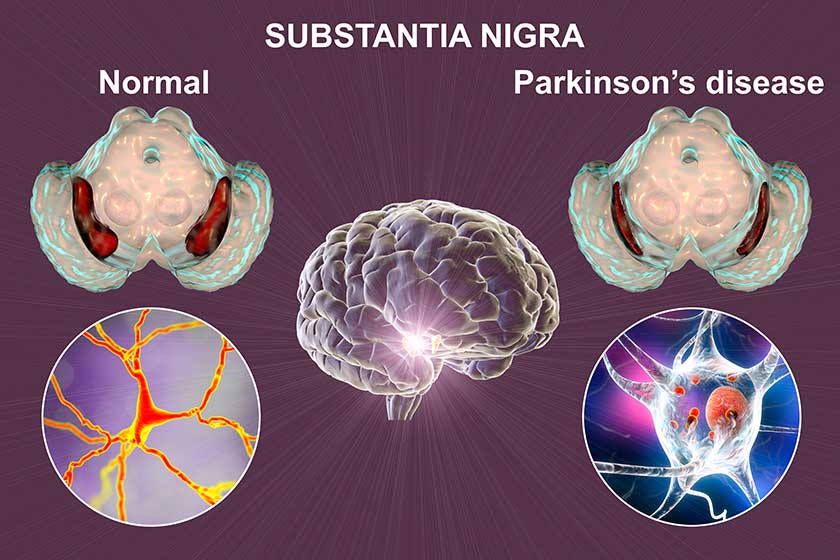Those who have to deal with memory care may wonder about the difference between ALS vs. Parkinson’s disease. Both affect how the body moves, but they’re not the same. ALS (Amyotrophic Lateral Sclerosis) speeds up over time, making muscles weaker and harder to use. Parkinson’s disease also messes with the body’s movements, but it’s more about shaking and stiff muscles. Knowing these differences helps in understanding each person’s needs.
Our Senior Living home offers health & fitness programs that cater to all residents, including those with ALS or Parkinson’s. We create workouts and activities that match what each person can do. This means everyone can stay as active and healthy as possible.
Origin of Symptoms
ALS damages nerve cells in the brain and spinal cord, leading to loss of muscle control. Parkinson’s harms nerve cells in a brain area that makes dopamine, a chemical that helps control movement.
In ALS, motor neurons die, and the brain can’t tell muscles to move. Over time, the muscles become weak and stiff. Parkinson’s Disease lowers dopamine levels, causing symptoms like shaking and trouble moving.
Progression Rate
ALS and Parkinson’s differ greatly in how quickly they worsen. ALS tends to move faster, with most people facing serious effects within 3 to 5 years after symptoms start. Parkinson’s Disease usually progresses more slowly over many years. This slower pace allows more time for treatment.
Main Symptoms
The main sign of ALS is muscle weakness, often starting in the hands, feet, or limbs and getting worse over time. For Parkinson’s, shaking or tremors are more common, especially at rest. Parkinson’s also often causes stiff muscles and moving problems.
Treatment Approaches
Treating ALS focuses on easing symptoms and improving quality of life, with methods like physical therapy and equipment to help with daily activities. There’s no cure, but some drugs can slow its effect slightly.
For Parkinson’s, medication can often control symptoms well, mainly by increasing dopamine levels. Physical therapy helps, too. In some cases, brain surgery might be an option to control symptoms when medication isn’t working as well.
Ready to Find Out More?
We give family members peace of mind knowing their loved ones get the right support they need, especially for those with ALS or Parkinson’s. With our health and fitness programs specifically designed for these conditions, we focus on what residents can do, helping them to keep their strength and mobility for as long as possible.
If you’re looking for a community to retire that understands and supports conditions like ALS and Parkinson’s, we’re here to help. Reach out to us to learn how our health & fitness programs can make a positive difference in your loved one’s life.







